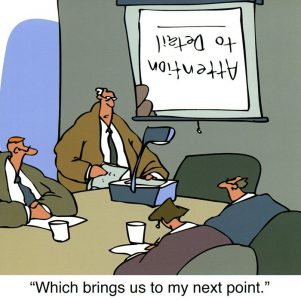News
Views From The Top #1: 7 Character Traits That the Best Employees Share

Published: 4:08 PM on July 04, 2016
Each week our Executive Director, Dr. Robin Maraj, will share his thoughts on some key articles. Today, he looks at an article by Neil Patel (Published June 29, 2016 ) on some of the traits employers look for in employees.
“Management is a team sport, and if one is playing to win, then it is imperative that due care and attention be paid to the character traits of your teammates, not just their technical capabilities. The following article focuses on the key character traits that are shared by the best employees, globally” – Dr. Robin Maraj
Seven qualities that the best employees have in common:
1. Reliability

Your employees are only as good as they are reliable. But, how do you determine how reliable new hires will be before you work with them? The value of credentials has all but vanished in today’s economy, so you have to look elsewhere.
Quite frankly, I don’t care where someone has worked or what his or her GPA was in college (or even if he or she went to college). What matters to me is what this person has done. Has he stayed at the same job for years? Or, did she have three jobs in the last year? Was he successful at what he did? Why did she leave?
I couldn’t care less about the text of someone’s CV and more about former employers and coworkers have to say. I will spend hours on the phone speaking with a potential new employee’s references before extending a job offer. Tip: Ask former employers what the potential employee’s attendance was like, to get a feel for what you yourself might experience.
A committed employee will be a more reliable employee, so be sure to get a sense of the candidate’s passion for the position and the field.
2. Confidence

A confident person is more likely to speak up when things go wrong, even if he or she looks stupid doing so. Too often, employees look at someone else to speak up first. Seek out people with the confidence to express their opinions and create a culture that fosters open disagreements. A confident employee will not only find it easy to initiate conversations and act independently but will also exude confidence to clients and peers.
We work better with people we trust, and we trust people who are confident in their beliefs and abilities, whatever their job role may be.
3. Image

Appearance matters in the workplace. Regardless of how attractive someone may appear, well-dressed employees give a better impression of themselves and their company than people with disheveled clothes and unkempt hair. It’s important that employees dress to fit your company’s image. I’m not suggesting that everyone look alike, only that you uphold some standard of professionalism based on your industry’s standards and common practice.
4. Experience

Experience trumps all. When hiring new employees, look closely at their background and past work experience. But, even more important, ask specific questions about their experience. Ask questions that require detailed knowledge about the industry to figure out how exactly what they know.
What did they learn? What challenges did they face? How did they overcome them?
Listen closely to their answers and notice how comfortable they are when speaking about their experience. Do they respond with generic industry tropes or speak specifically, using data and numbers? This will give you a good idea of whether they can truly walk the walk.
5. Easy to work with

Gone are the days of isolated programming and engineering jobs. Today, the best employees in any field are those who work well with others. “You can make more friends in two months by becoming interested in other people than you can in two years by trying to get other people interested in you,” Dale Carnegie wisely said.
Whether they’ll be interacting only with colleagues in the office or clients, hire employees who work well with others. Better yet, hire people who are great with other people. Look for someone with a positive outlook, someone who smiles and someone who looks you in the eye. Pay attention to small talk.
Employees should be able to hold a polite and sensible conversation with colleagues and clients. If they can’t, it’s unlikely that they’ll capture or keep business. On the other hand, keep an eye out for constant complainers. Ask what they didn’t like about past positions.
Are candidates’ responses polite yet honest, or are they a license to vent? Their answers will tell you how they’ll speak about your company when they leave. Everyone has things that they don’t like about a job. However, the best employees maintain a sense of tact and keep these complaints to themselves, especially during an interview.
6. Detail-orientated

“Detail oriented” has become somewhat of a standard buzzword filler for candidates and job postings. But it’s still important.
A strong attention to detail is a key indicator of success in business. This is especially true if the employee works in a technical or number-crunching role. Detail-orientated employees are more likely to double check their work and proof-read before labeling something as “complete.”
7. Emotional intelligence

Academic intelligence is not the only form of intelligence. True intelligence is a lot more than a piece of paper from a college. True intelligence comes from experience. Experiences in the real world give us a sense of “street smarts,” or what’s formally called emotional intelligence.
There are a number of interview questions that can gauge someone’s level of emotional intelligence. Ask a combination of problem solving questions and logic questions. You may be surprised by a candidate’s creative answers.
Conclusion
Finding a good employee is hard work. I spend upwards of 100 hours per hire. That’s a lot of time, but it’s essential to hiring the right people. If you know what you’re looking for, it can make the process a lot easier. Prioritize the characteristics that matter most in your business. Come up with interview questions that will screen for employees who have those traits.